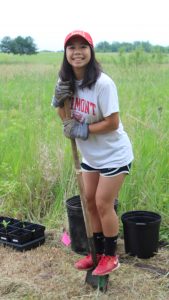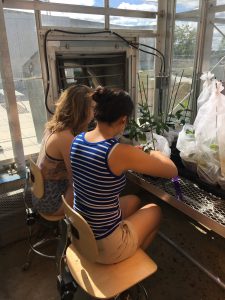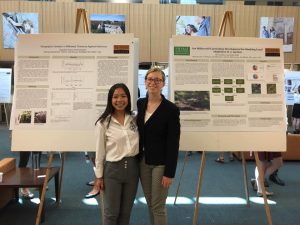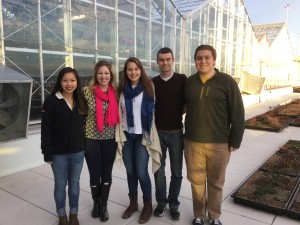We are pleased to offer two workshops for teachers this summer at St. Olaf College, Northfield, MN
Applications Below
- Got Milkweed? Collecting Data about Milkweed to Inform Our Response to the Monarch Population Decline. August 2-3, 2016
Monarch caterpillars only eat one kind of plant–milkweed. As monarch butterfly populations are declining and more people are planting milkweed,what is important to understand about this food source? This workshop introduces participants to a new distributed research project designed to help students understand evolution and ecology through inquiry about milkweed plants while simultaneously gathering data to answer important scientific questions, such as: “What should we do to slow the decline of the monarch butterfly populations?” and “Does the origin of milkweed seeds affect their growth?”
Participating schools will plant milkweed seeds from local and non-local populations and gather data annually in spring and fall to determine whether milkweed populations are locally adapted, meaning it would be beneficial to plant locally sourced milkweed genotypes, or whether there are certain superior milkweed genotypes that perform better in all locations. Learning opportunities align well with Life Science Next Generation Science Standards at both middle and high school levels. The project requires a one-time collection of common milkweed seeds from a naturally occurring (not planted) local population, space in which to plant about 16 milkweed plants, and a commitment to work with students annually to follow specific protocols for data collection in the spring and fall for multiple years. $200 stipend for participation. For more information about the experiment, visit this link.
- Tackling Challenges in Middle School Science. August 3-5, 2016
What are some of the biggest challenges you face in your teaching? Come together with other middle school teachers to share ideas and workshop a lesson or series of lessons that you’d like to improve. Learn about reading and data analysis strategies to incorporate into your teaching, and get new ideas from disciplinary and interdisciplinary scientists and researchers. Spend time integrating what you have learned into your plans for the future. $300 stipend for participation.
Details
We invite applications to one or both workshops, and we encourage groups of teachers from the same school or district to apply. Teachers who participate in both workshops will receive a maximum $400 stipend. Additional funds are available to support travel and lodging for teachers who live more than 50 miles from St. Olaf College, to support purchase of supplies necessary to implement school-based projects, and for participation in follow up activities during the school year.
These workshops are supported by a grant from HHMI to St. Olaf College. We offered similar workshops in previous years. Participants appreciated the opportunity to learn and collaborate with colleagues.
“This is hands-down the best workshop I have ever attended.”—2015 Participant
“The time to work on planning was invaluable and the tools we were exposed to are exciting.”—2015 Participant
“I very much enjoyed this workshop. I liked having the opportunity to collaborate with colleagues from my school district as well as grade-specific colleagues from other districts… Great workshop!” –2014 Participant
Tentative Schedules
Got Milkweed?
- August 2 (Late start ~noon): Introductions. Lunch. Monarchs and milkweeds—stories and hypotheses. Research problem and protocols: data collection in the St. Olaf natural lands.
- August 3: Data submission, analysis, and proposing solutions.“Data jam” presentations. Lunch. Reflections and commitments. *Afternoon session optional. Tackling teaching challenges: Reading and data strategies.
Tackling Challenges
- August 3: (Late start ~noon). Lunch. Introductions. Tackling teaching challenges: Reading and data strategies.
- August 4: Group Time: Workshopping challenges. Lunch. Subject specific workshops. Individual Planning.
- August 5 Attend and evaluate research presentations. Goals, plans, order supplies. Reflections and commitments.
Apply now
Applications submitted by May 15 will receive full consideration. Applications received after that date will be accepted if space is available.
Got Milkweed Application
Tackling Challenges Application
For more information: If you have any questions about the workshops, please contact Emily Mohl at mohl@stolaf.edu.

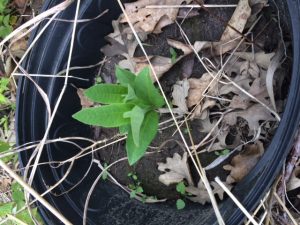
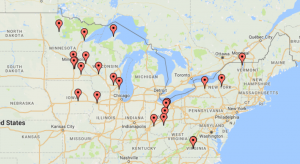
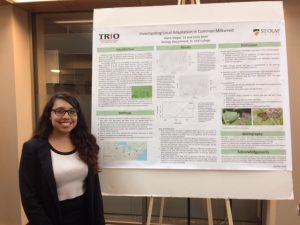
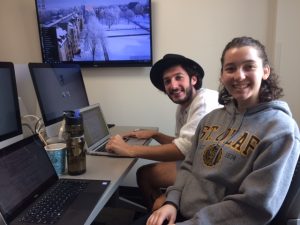
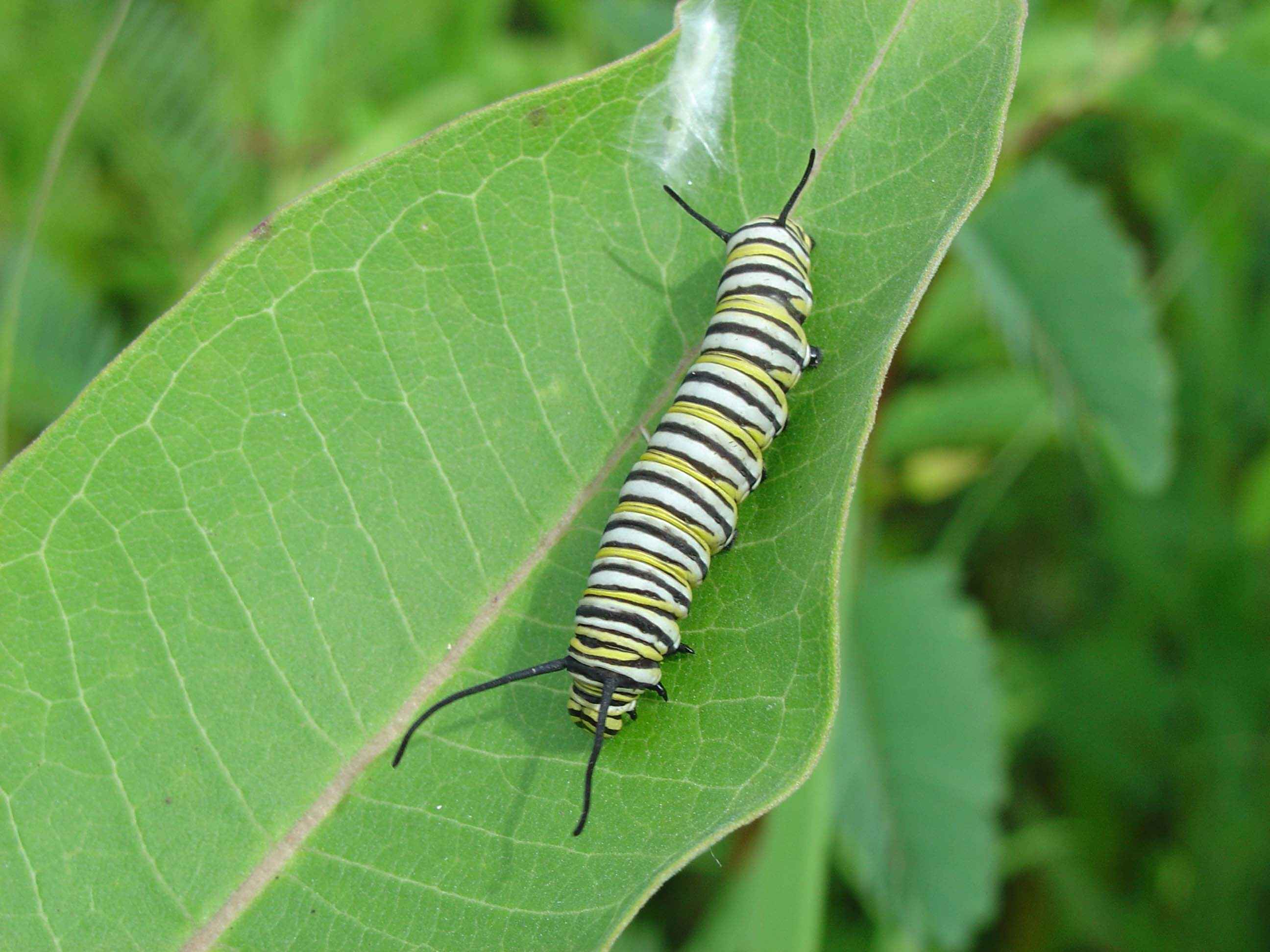 onarch caterpillars only eat one kind of plant–milkweed. As monarch butterfly populations are declining and more people are planting milkweed, what is important to understand about this food source? This workshop introduces participants to a distributed research project designed to help students understand evolution and ecology through inquiry about milkweed plants while simultaneously gathering data to answer important scientific questions, such as: “What should we do to slow the decline of the monarch butterfly populations?” and “Does the origin of milkweed seeds affect their growth?”
onarch caterpillars only eat one kind of plant–milkweed. As monarch butterfly populations are declining and more people are planting milkweed, what is important to understand about this food source? This workshop introduces participants to a distributed research project designed to help students understand evolution and ecology through inquiry about milkweed plants while simultaneously gathering data to answer important scientific questions, such as: “What should we do to slow the decline of the monarch butterfly populations?” and “Does the origin of milkweed seeds affect their growth?” pulations and gather data on milkweed growth annually in spring and fall to determine whether milkweed populations are locally adapted, meaning it would be beneficial to plant locally-sourced milkweed genotypes, or whether there are certain superior milkweed genotypes that perform better in all locations. Learning opportunities align well with Life Science Next Generation Science Standards at both middle and high school levels. The project requires a one-time collection of common milkweed seeds from a naturally occurring (not planted) local population, space and time to plant 20 or more milkweed plants, and a commitment to work with students annually to follow specific protocols for data collection in the spring and fall for multiple years. Optional extensions for data collection during the summer are in development.
pulations and gather data on milkweed growth annually in spring and fall to determine whether milkweed populations are locally adapted, meaning it would be beneficial to plant locally-sourced milkweed genotypes, or whether there are certain superior milkweed genotypes that perform better in all locations. Learning opportunities align well with Life Science Next Generation Science Standards at both middle and high school levels. The project requires a one-time collection of common milkweed seeds from a naturally occurring (not planted) local population, space and time to plant 20 or more milkweed plants, and a commitment to work with students annually to follow specific protocols for data collection in the spring and fall for multiple years. Optional extensions for data collection during the summer are in development.